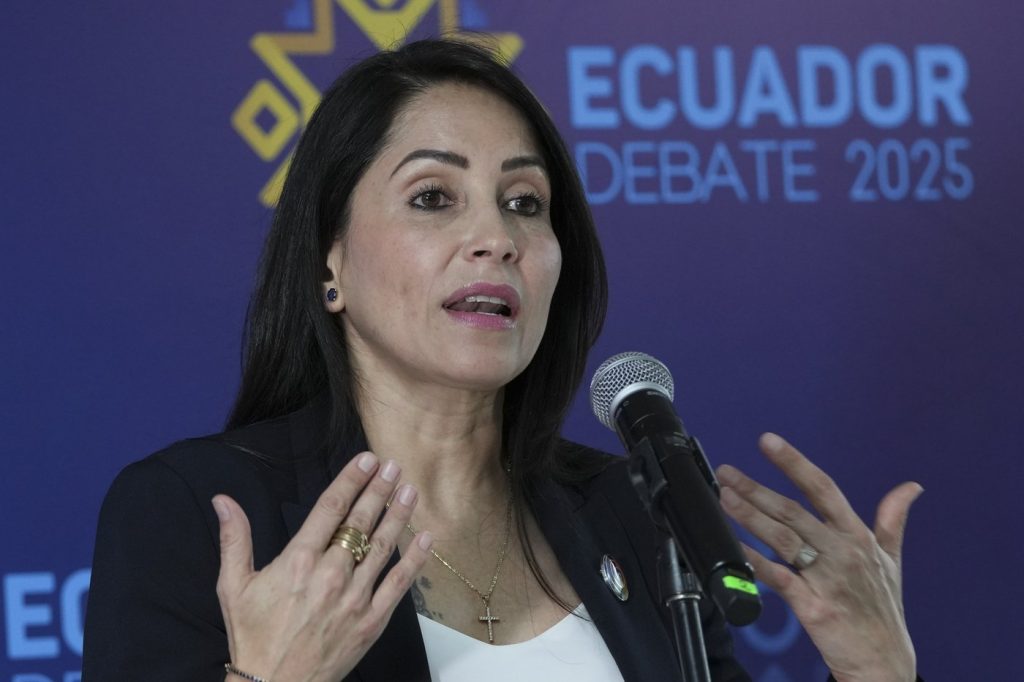GUAYAQUIL, Ecuador (AP) — Luisa González, a lawyer with limited political experience, is campaigning for Ecuador's presidency for the second time. Her name is prominent across various media platforms, aiming to secure votes as she faces 15 other candidates on this Sunday's ballot, including the incumbent Daniel Noboa. However, her political aspirations are closely tied to her mentor, former President Rafael Correa, making her candidacy more about her connection to him than her individual platform.
When Ecuadorians refer to "Luisa," discussions often lead back to Correa, the former populist leader who served from 2007 until 2017. His governance was marked by increasing authoritarianism in his later years and a corruption scandal that resulted in his sentencing to prison in absentia in 2020. This connection complicates González's campaign, as Correa's legacy inspires a strong divide among voters, which may impact the upcoming election result. Analysts predict a repetition of the October 2023 runoff election, where González previously lost to Noboa following a snap election called by then-President Guillermo Lasso.
González, 47, was virtually unknown until Correa’s party, the Citizen Revolution, selected her as their candidate. Prior to this role, her only political experience included a brief tenure as a lawmaker, following years in management roles within state agencies. She has ascended to the presidency of Citizen Revolution, yet she faces the challenge of distinguishing her campaign from that of Correa while still benefiting from his political structure and support.
Franklin Ramirez, a political science research professor at the Latin American School of Social Sciences, emphasized that González has a solid political foundation due to the Citizen Revolution's history and experience in governance, unlike Noboa’s newer political project. For many supporters, she represents a continuity of the party’s organizational strength far beyond Correa himself.
As campaign efforts intensified, González focused on addressing Ecuador's pressing issue of violent crime, appealing to thousands of supporters in Guayaquil. She vowed to combat the surge in violence, which has plagued the country for the past four years. The increasing crime rates are linked to the significant cocaine trafficking from neighboring Colombia and Peru, with various international cartels establishing operations in Ecuador alongside local gangs.
During Noboa's presidency, he has managed to reduce the homicide rate from 8,237 (46.18 per 100,000) in 2023 to 6,964 (38.76 per 100,000) the following year. Despite this reduction, the numbers remain alarmingly higher than the 1,188 homicides (6.85 per 100,000) recorded in 2019. In her speeches, González has criticized Noboa for failing to fulfill his campaign promises, including tax increases and the management of an electricity crisis that led to prolonged blackouts.
With military and security personnel ensuring her protection, González urged her supporters to join her in transforming the nation’s current "dark reality" into one of peace. Her promises aim not only to return safety to Ecuador but also to encapsulate a broader message of political renewal and change, reflecting the persistent hope for stability among the electorate.










